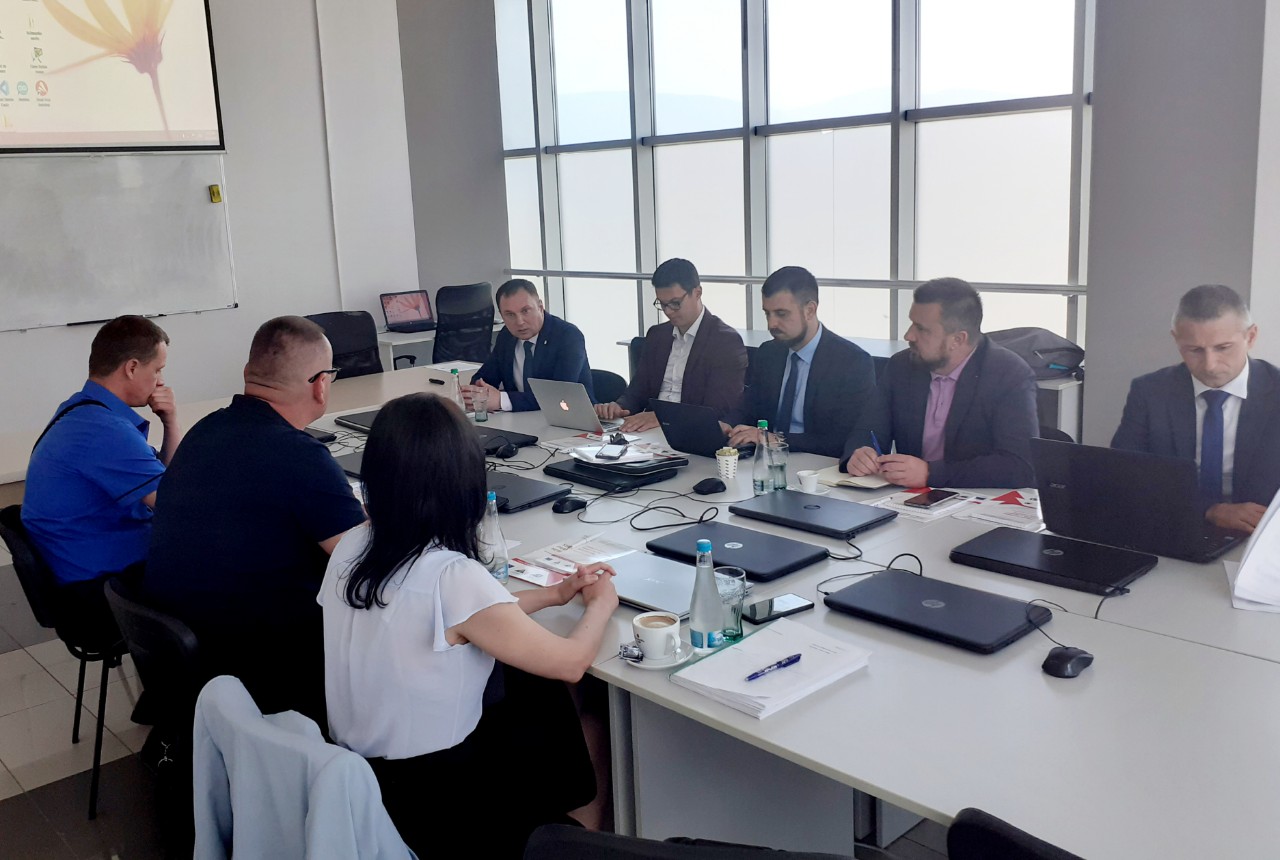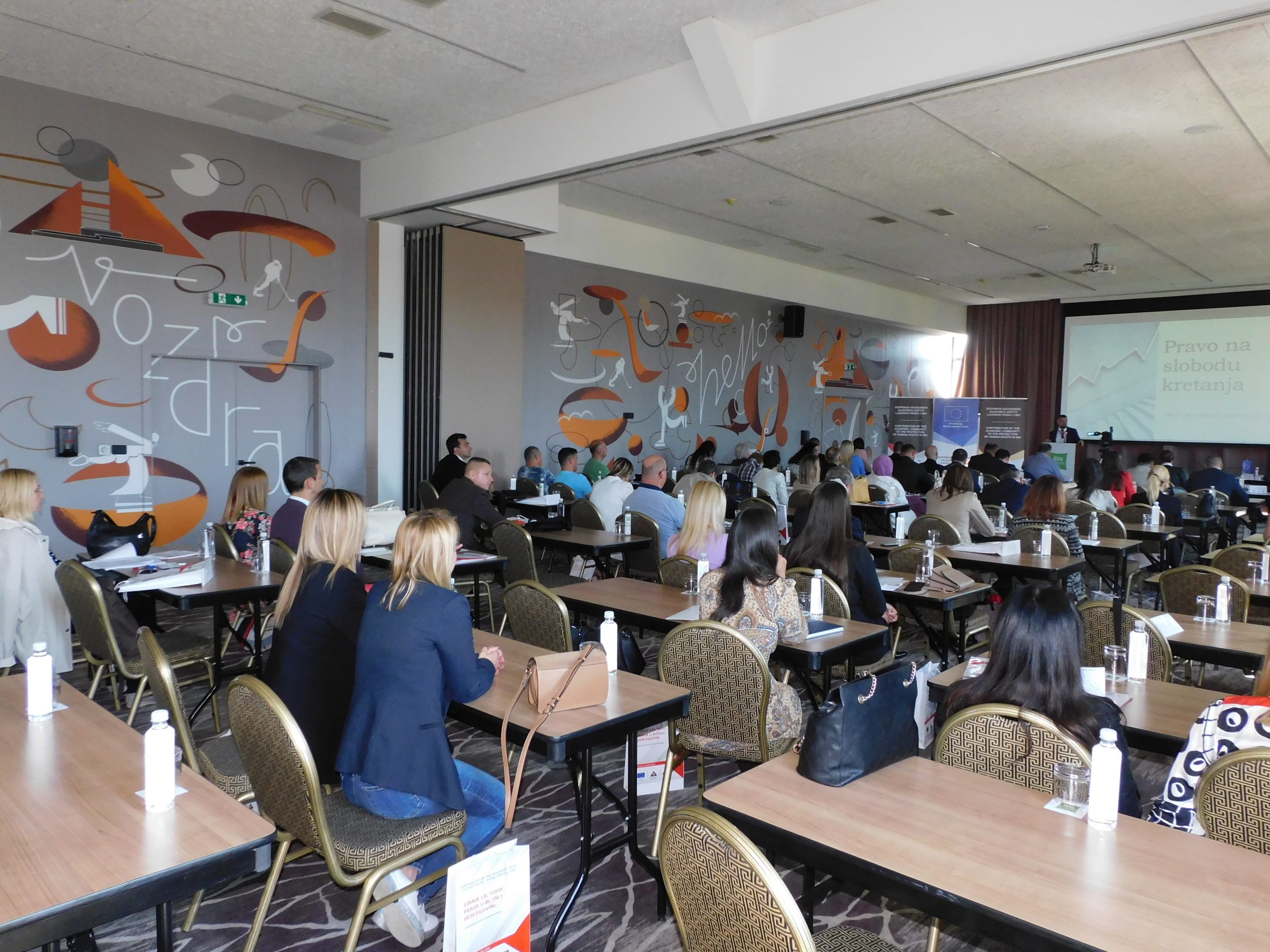On 27 May 2022, a working meeting of representatives of the expert working group of the project “Contribution of the Academic Community to the Protection of Human Rights in Bosnia and Herzegovina – CAHR” and representatives of the working group for drafting the Law on Amendments and amendments to the Law on Public Order and Peace and the Law on Freedom of Peaceful Assembly of this canton was held. The mentioned meeting is a continuation of the cooperation with the Ministry of Interior of Una-Sana Canton, which was established at the beginning of the year when the representatives of the expert working group of the CAHR project visited this Ministry.
The delegation of the working group of the Ministry of Internal Affairs of the Una-Sana Canton was led by Arijana Šabić, Secretary of the Ministry, Omer Tahitović and Elvis Mehić. On behalf of the CAHR project expert working group, the meeting was attended by PhD Elmedin Muratbegović, full professor at the Faculty of Criminalistics, Criminology and Security Studies in Sarajevo, PhD Veljko Turanjanin, Associate Professor at the Faculty of Law in Lukavica, PhD Aleksandar Ivanović, associate professor at the Faculty of Law in Lukavica and Dr Mladen Jeličić, Judge of the Misdemeanor Court in Šabac.
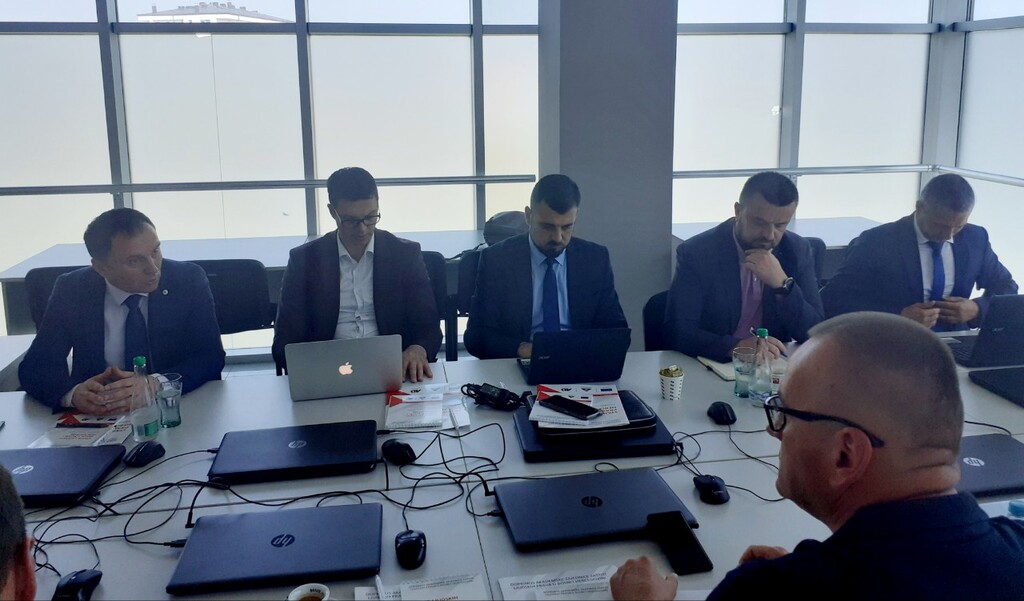
At the meeting, the members of the expert working group presented their comments and suggestions on certain provisions of the draft of the mentioned laws, after which a discussion was held on the issue of the possibility of more adequate formulation of the same. Special emphasis was placed on those provisions that are not in line with the European Convention for the Protection of Human Rights and Fundamental Freedoms, the case law of the European Court of Human Rights, the Venice Commission and the Office for Democratic Institutions and Human Rights (ODIHR). When it comes to the misdemeanor law area that speaks of public order and peace, the subject of analysis were the provisions concerning the extension of the definition of public place, in a way that it includes online space, and exhaustive listing of offenses that can be committed in the online environment. Also, the provisions concerning the definition of the so-called fake news, that is, beings of the offense of presenting and disseminating the same. Representatives of the expert working group of the CAHR project proposed prescribing a separate offense that protects freedom of movement and offered a proposal for its formulation. According to misdemeanor law areas of public gatherings, the subject of the analysis were the provisions that determine the places where gatherings cannot be held, and the provisions that prescribe the reasons for banning public gatherings. Also, the provisions that regulate the procedure of informing the organizers of the gathering about the ban, as well as the procedure of investing legal remedies in such situations, were analyzed. In addition, the meeting analyzed the provisions imposing certain obligations on the organizers of public gatherings, that is, their attendants, as well as the provisions concerning the reasons for interrupting public gatherings, and the provisions concerning the responsibility of organizers for possible damage caused by public gatherings. In addition to analyzing the provisions related to the status of media representatives at public gatherings, members of the CAHR expert working group pointed out the need to standardize the status of observers, as well as the obligations of public authorities to report to the Assembly on the application of the Law on Freedom of Peaceful Assembly in accordance with the principle of partnership for open government.
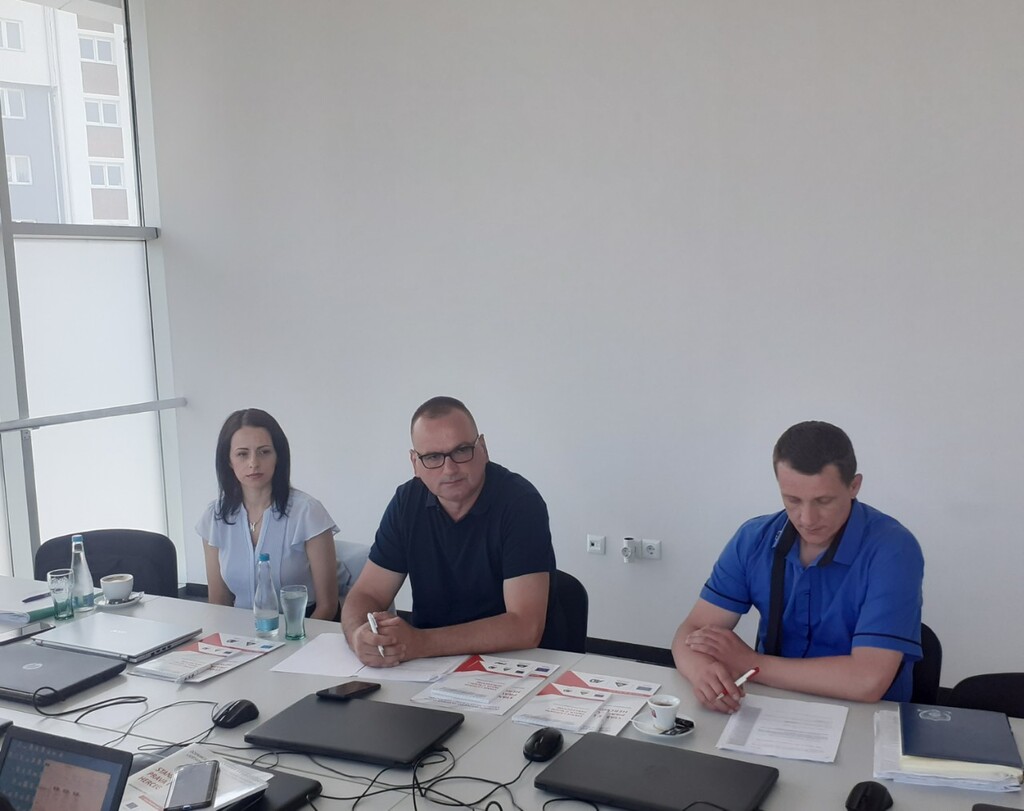
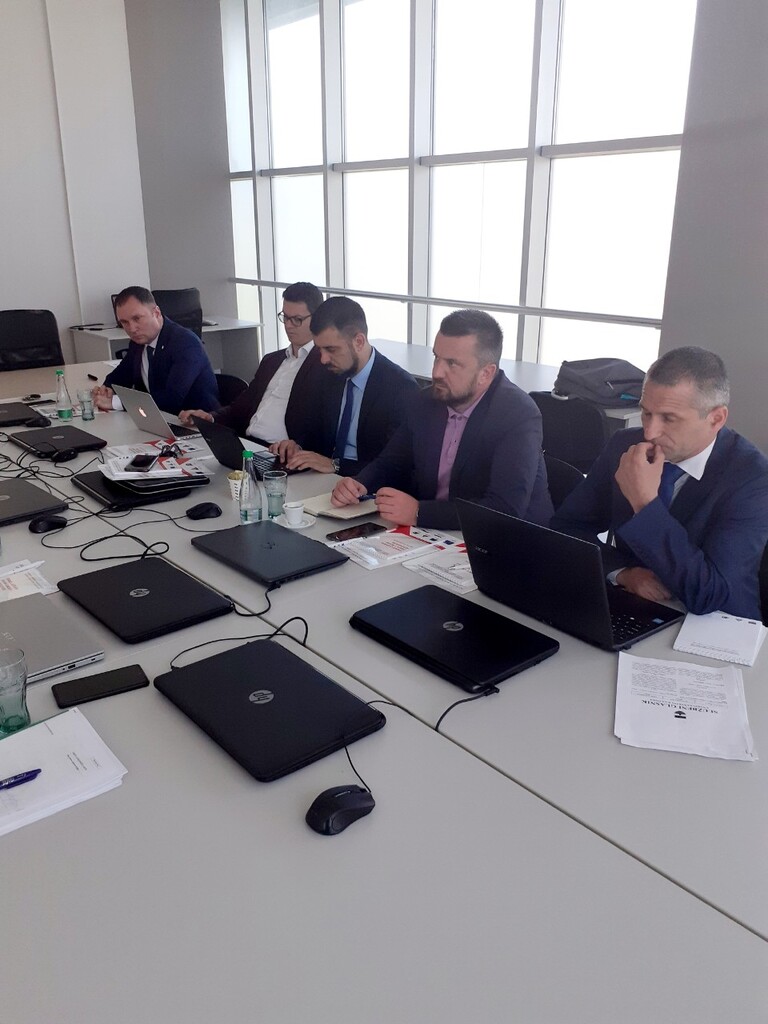
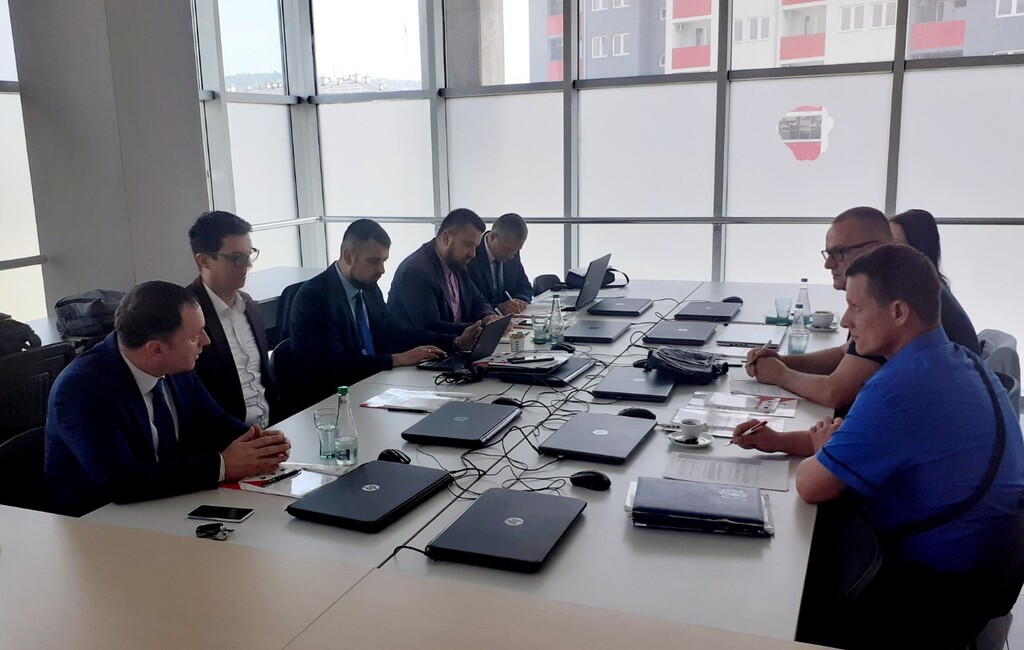
After sublimating everything that was presented at this meeting, the representatives of both working groups will provide new legal solutions that will be drafts of the mentioned laws, which will be sent to the Assembly for adoption after the procedures.

